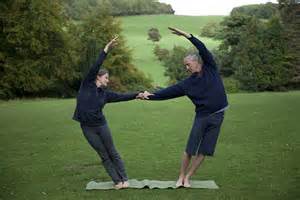
This is an old-y but a goody. Originally published by YourTango.com
Committing to Monogamy : What does it take?
I admit to being shocked that TV series The Bachelor, and its sister show, The Bachelorette, are still going with season 19! But it speaks to how focused we are on the dating portion of romance – the getting the partner to choose us and, so the story goes, commit. As a culture we have turned the search for love into a competition, a game, entertainment, something we can critique and, maybe sometimes, even learn from at a distance. But what we need are stories and examples of what happens after you have found each other. We need to watch people who can show us what it takes to be in love for the long term, how they wrap their mind around commitment, and how they are able to grow and thrive within successful monogamy way beyond the ring or the rose. I know some people who are doing that and here are a few foundational pieces they have in place.
The ability to see monogamy as a choice you make : You can’t do monogamy for your parents, or your friends, or you partner. You have to decide that this is what you want, for you. Identify your own reasons for wanting to be monogamous long-term. Maybe for you it is a religious or spiritual choice, maybe you value loyalty, maybe you see commitment as a path to personal growth, maybe you want to see what can happen if you focus your romantic energy on one person. Whatever your reasons, to be successful at long-term monogamy it is crucial to take responsibility for your choice and to let go of any resentments about other people “making” you do it. Monogamy is not the only choice. If you chose it, do it because you can own it.
A partner who rocks your world : This may seem obvious, but I see people again and again who say that they want to be in a committed relationship now and the person that they are with feels an ok match, so…This is a hard setup for long term monogamy. If you want to feel inspired to stay committed, you need to find a person who inspires you, a person who shares your sense of humor and adventure, a person who turns your body, mind and heart on in a variety of ways, the person who you want to leave the party with again and again. If you start out comparing your partner to others and wishing your partner could be different in this way or that, you may eventually find yourself just wishing for a different partner.
Understanding and familiarity with your own sexual desire : We live in a world of attractive people and no matter how appealing your partner is, you will still notice the other people out there. The romantic saying, “I only have eyes for you” is not realistic. Our culture makes sure you see and encourages you to be seen. Committing to monogamy requires you to be honest with yourself about this and to be prepared to shift the desire stirred up in the world back to your partner. You must learn how to respond to your own desires in ways that feel in integrity to you and this can only be learned by acknowledging that desire and attraction for others will not go away even when you find the one person you want to commit to.
Confidence to be yourself and to ask for what you want : Long-term commitment will be difficult at best if you go into it by trying to shape yourself into the person you think your partner wants. A fun part of early dating can be trying out new things, being introduced to your partner’s new world. But it is one thing to go to MMA fights a few times and another to pretend that you will be happy doing this every weekend for the next 5 years. If you feel that you are subtly dismissing the things you want and slowly letting your life or yourself be reshaped into your partner’s idea of the ideal, be cautious. You want to be sure your partner is committing to you - the self you want to be, not the self you can be if you have to. And you want to be sure you are committing to a life you can happily embrace, not one with creeping resentment.
We may not have a lot of TV shows about it, but long term relationships are hardly boring. They ask a lot of the people involved. So whether you are searching for a partner or have found someone but are wondering how to keep it going into the future, I invite you to think about these traits. You can develop them and they will help to have a strong foundation for the evolving adventure that is love between two people.